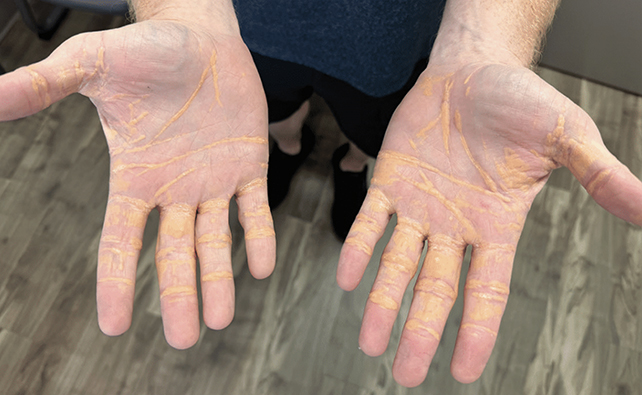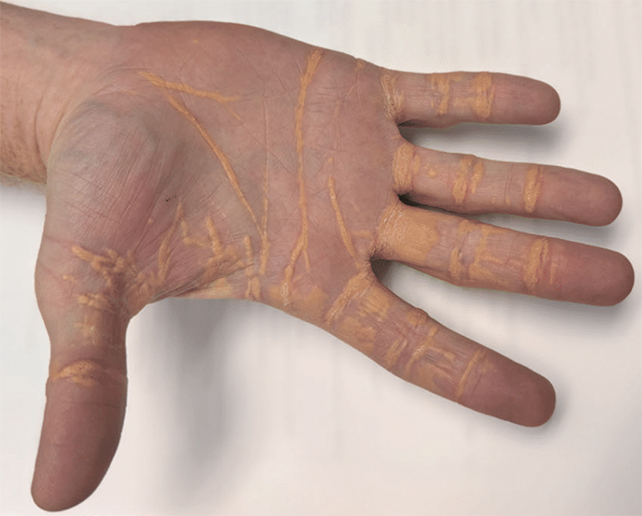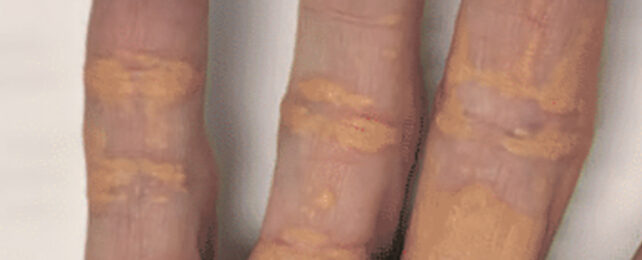A not-particularly-healthy diet of hamburgers, cheese, and butter sticks led to one man from Florida developing yellow-ish cholesterol deposits across his body, according to a newly published report.
We don't have too many details about the case, but the man is said to be in his 40s, and had been seeing "asymptomatic yellowish nodules on his palms, soles, and elbows" for three weeks by the time he went to see a doctor.
That followed around eight months of sticking to the carnivore diet, which means nothing but meat, poultry, eggs, seafood, some dairy products, and water. Fruit and vegetables are banned, as are grains, legumes, seeds, and nuts.

While the carnivore diet (a type of low-carbohydrate keto diet) has grown in popularity in recent years, the science says it's going to leave your body short of essential vitamins, nutrients, and fibers, and raise the risk of diseases such as cancer.
Apparently, the guy was consuming up to 4 kilograms (9 pounds) of fatty food every day – even adding extra fat to his hamburgers. His cholesterol level was recorded at over 1,000 mg/dL, more than five times higher than the recommended healthy range for adults.
Those eating habits and high cholesterol caused the yellow blotches on the skin, as cholesterol overloaded the bloodstream. In some areas the build-up was so great that the cholesterol had started cracking through the skin.
The medical team who saw the man diagnosed an extreme case of xanthelasma, which leads to visible, yellow-ish deposits of cholesterol under the skin. It most often shows up around the eyes, but can appear on other parts of the body too.

Previous research has linked xanthelasma to other conditions, including diabetes and thyroid issues. It's also closely associated with hyperlipidemia or high cholesterol, as in this fatty diet scenario.
While the marks aren't painful, they can now only be removed by special surgery, even if the man's diet (and cholesterol levels) return to normal. Laser surgery is one option, as is an extreme cold liquid nitrogen treatment.
Aside from the physical manifestations, the condition indicates something more serious underneath: high cholesterol is linked to a variety of significant health issues, including heart disease, stroke, and kidney disease.
There's plenty of evidence that the way high cholesterol clogs up the blood can encourage cancer growth and potentially even raise dementia risk – on top of causing the essential pathways of the body to get clogged up.
Let's hope the patient in this case heeded the advice of doctors and has made some adjustments to his diet – even if he had reported the carnivore diet had led to weight loss, a feeling of having more energy, and improved mental clarity.
The case study has been published in JAMA Cardiology.
